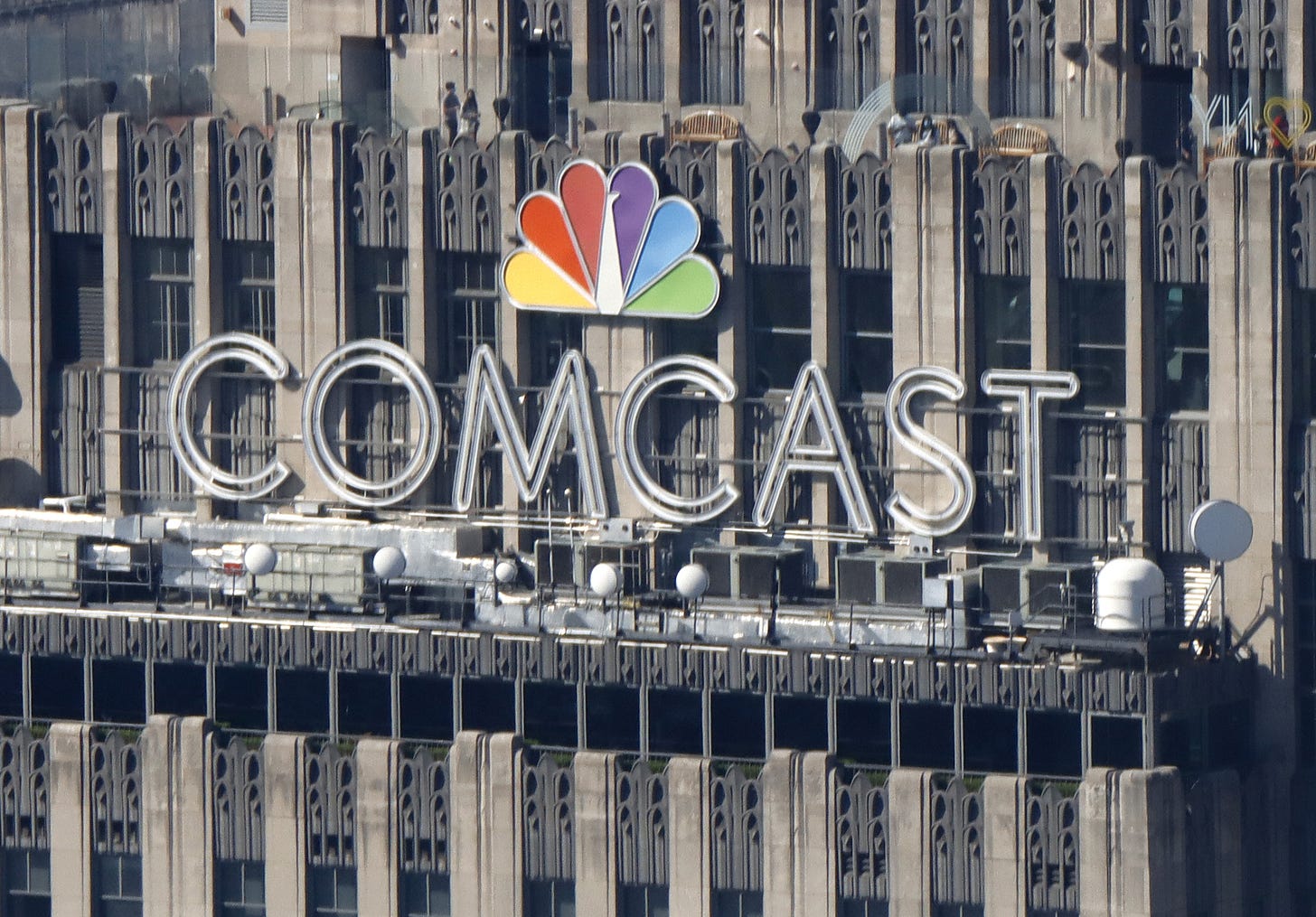Comcast, a Backer of Reproductive Rights, Donates to DeSantis’s Anti-Abortion PAC
The check has angered abortion-rights advocates in Florida, who call it “vile corporate hypocrisy.”
AFTER THE U.S. SUPREME COURT’S DOBBS DECISION in 2022, telecommunications giant Comcast announced it would give employees seeking to terminate a pregnancy as much as $10,000 to travel from states with strict anti-abortion laws to those with greater protections.
Two years later, Comcast cut a check to one of the main groups seeking to restrict abortion rights.
This month, the telecom giant sent $50,000 to Ron DeSantis’s Florida Freedom Fund, the political action committee launched by the governor to block an abortion rights initiative in the state.
Corporations often attempt to curry good will and favor with politicians by helping fill their coffers. And Comcast has a variety of interests in Florida.
But the donation to the Florida Freedom Fund caught abortion-rights groups in Florida by surprise. It was not just that it came during the final lap of a high-profile effort by the PAC to try and maintain a strict six-week abortion ban in the state, but because it seemingly conflicted with Comcast’s own employee policy and public-relations efforts around abortion access.
“It’s an example of vile corporate hypocrisy. I would encourage everyone in Florida to think about which company they choose to give their money to,” said Anna Hochkammer, executive director of the Florida Women’s Freedom Coalition, which helped draft Florida’s proposed constitutional amendment and gathered the signatures to place it before voters November 5.
Spokespeople for Comcast and NBCUniversal did not return a request for comment.
The fight over abortion access in Florida has taken on national significance this election season in light of Vice President Kamala Harris’s prioritization of the issue and former President Donald Trump’s reluctance to take a stand on the matter. Abortion rights activists have sought to enshrine a right to abortion in the state’s constitution—and, in the process, overturn the recently enacted six-week abortion ban—through a referendum called Amendment 4.
In polls, Amendment 4 has majority support. However, the initiative might not pass because it takes 60 percent voter approval to enact a state constitutional amendment in Florida. Most polls show support for the amendment hovering around the 60 percent threshold.
Florida’s six-week abortion ban is so unpopular that Trump called it “too harsh” and, at one point, seemed to be in favor of the amendment to undo it. But amid conservative outcry, he announced his opposition late last month. Harris has since attacked him for being comfortable with keeping the six-week ban in place.
This isn’t the first time that Comcast’s political contributions have financed anti-abortion activity.
Last year, a watchdog group called the Center for Political Accountability issued an analysis that showed Comcast and other corporations that have liberal abortion employee policies were major contributors to the Republican State Leadership Committee. The RSLC helped elect anti-abortion lawmakers in states like North Carolina, where they overrode Democratic Gov. Roy Cooper’s veto of a twelve-week abortion ban. A separate analysis also showed that Comcast was among a slew of corporations who had pledged to help women gain abortion access in the wake of the Dobbs decision but also donated to Florida lawmakers who supported the six-week ban.
Unlike other corporations that have been on both sides of the abortion issue, Comcast also oversees a major news division. Included in its holdings is both NBC News (where this reporter previously worked) and the liberal-leaning cable news network, MSNBC.
As the third-most-populous state in the nation, Florida is an important state for any major national corporation like Comcast, where its vast holdings are subject to regulations and taxes that are debated in Tallahassee. It is unclear exactly what, if anything, Comcast hoped to gain for its donation to the PAC controlled by DeSantis, who has governed with a heavy political hand ever since he was first elected in 2018.
Bruce Freed, president of the Center for Political Accountability, said Comcast’s position in Florida poses “a very, very serious risk today internally and externally. Internally, it’s a problem for employees. Externally, this can upset customers and even become a problem with shareholders. Comcast is not doing its due diligence and risk assessment that is really required in today’s political environment, which is fought with risks.”
Hochkammer said she’s at no risk of dropping Comcast as a cable company, however.
“I’ve never been happier to be an AT&T customer,” she said. “Comcast got its wires crossed on this one.”





